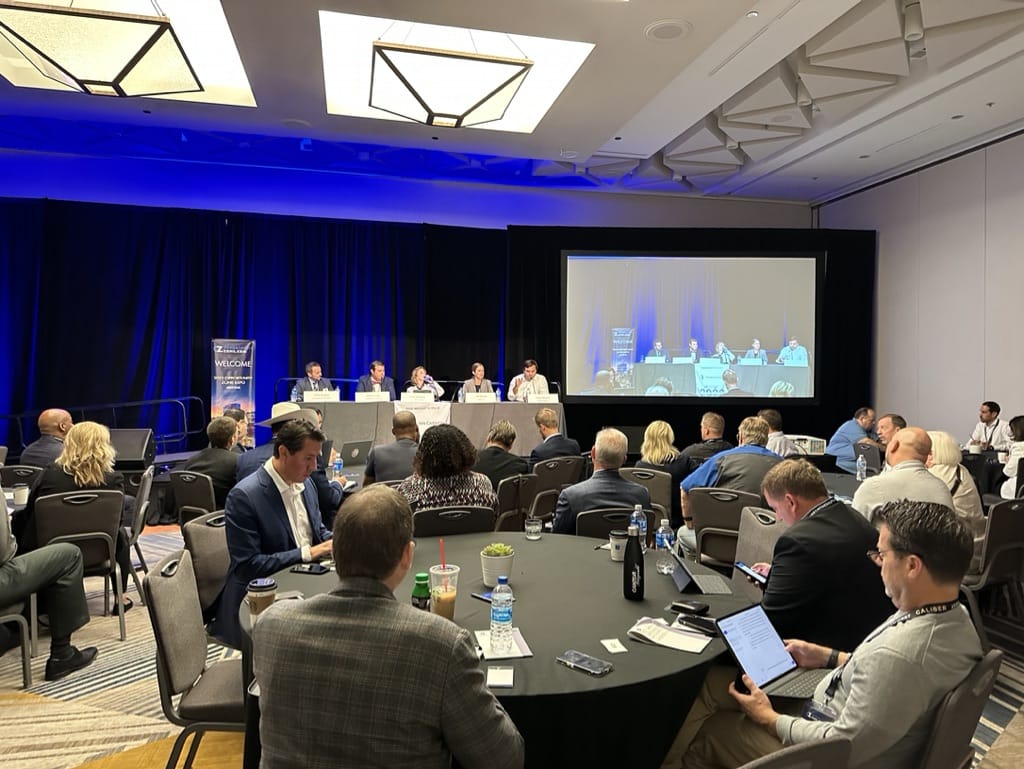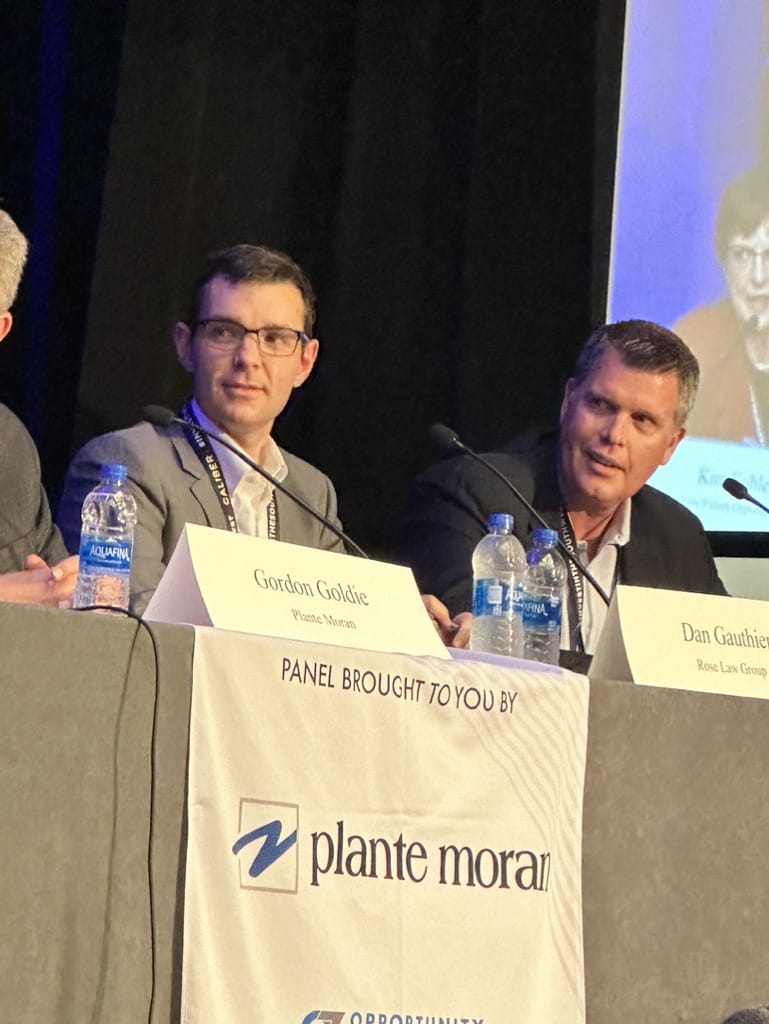TAKE-AWAY= Projects that reaped the tax benefits for their opportunity zone projects, but built businesses that cater to high-income customers instead of re-stimulating the economy for the intended communities, are proving to be disappointing examples
Here’s why we need more opportunity zone development
By Madelaine Braggs | Rose Law Group Reporter
"The nation’s largest convention for opportunity zone investors, developers and legal professionals featured insights from the industry’s brightest, including Rose Law Group attorney Dan Gauthier.
“Continued and increased opportunity zone investment and development, raises the tide for not only opportunity zone stakeholders and the success of the program, but also for the communities, businesses and people who reap the benefits of development projects that may, if not for the OZ program, pass on a particular project,” says Gauthier.
Hundreds gathered at the Hyatt Regency Phoenix Monday for the 2022 Annual Opportunity Zone Expo to reflect on what they’ve learned since a revolutionary tax incentive program created in 2017 under the Tax Cuts and Jobs Act of 2017 (Public Law No. 115-97).
For anyone unfamiliar with these types of projects, opportunity zones are an economic development tool that allows communities to redevelop neglected areas, while prioritizing the community’s human interests. Following state nomination, low-income communities and certain neighboring areas, defined by population census tracts, can qualify as Opportunity Zones. Opportunity Zones offer tax benefits to investors who elect to temporarily defer tax on capital gains if they timely invest those gain amounts in a Qualified Opportunity Fund (QOF).
OZ Legislation Update
Legislation introduced this year by New Jersey Senator Cory Booker (D) revises rules and reinstates reporting requirements relating to economically distressed communities where new investments, under specified conditions, may be eligible for preferential tax treatment.

✓ Specifically, S.4065 terminates the designation of zones that are disqualified due to median family income exceeding 130% of national median family income and permits states to identify and expand terminations of such zones.
✓✓ The bill also reinstates reporting requirements for qualified opportunity zones and imposes penalties for noncompliance with such requirements, extends the opportunity zones temporary deferral period for qualifying capital gain through 2028, and establishes a State and Community Dynamism Fund to support public and private investment in qualified opportunity zones.
As Plante Moran Partner Gordon Goldie explains it, there’s usually a very quick payback when doing a cost segregation study, particularly when bonus depreciation is up for grabs. However, that accelerated depreciation is subject to recapture. In an opportunity zone, cost segregation is even more significant because part of the benefit – the accelerated depreciation – becomes permanent as there’s no tax on the recapture.
Although legal analysts doubt the bill with move anytime this legislative season, but the industry is widely supportive. Developers say we need more opportunity zones because they’re a transformative economic development tool for serving under-capitalized communities. The catch to these projects is not just saving on taxes, but proving its positive social impact on the community. Elizabeth Humphreys, founder of consulting firm Zephyr OZ and panelist speaker… says the best two metrics to measure that impact is jobs and housing. Criticism of opportunity zones mainly surround the concern of ‘gentrification,’ some worry that if shiny new developments come into town it will price out, and thus push out, current local residents.
Whether the incentive is to provide quality rent-controlled housing, or reform homelessness encampments, opportunity zone policies or projects will have a higher chance of getting passed if it has support from both community advocates and builders. Humphreys says allowing room for customization per community could be a solution. “Local governments want to see positive projects for their community, but that will be different for each community. Over-regulating can do harm to local communities and hold up good projects.”
Projects that reaped the tax benefits for their opportunity zone projects, but built businesses that cater to high-income customers instead of re-stimulating the economy for the intended communities, are proving to be disappointing examples. Many panelists at the expo made references to harmful narratives creating public mistrust for opportunity zones, urging investors and developers to instead share their success stories.(Best Practices Panel from left to right: Clint Edington, Gordon Goldie, Dan Gauthier, Ashley Tison)
Better Examples

The number one thing to earn public trust is with compliance. Rose Law Group business and real estate transactions attorney Dan Gauthier says neglecting to have a compliance plan sets you up to fail down the line. During a best practices themed panel Gauthier and industry colleagues shared some tips on how they maintain full transparency throughout a project.
“With my clients, I do a periodic compliance call in anticipation of any testing dates. We get everyone on the phone or in person and we check in to figure out what’s happened in the last six months. That’s worked out really well and uncovered issues that we wouldn’t have had time to fix if not for those early calls.”
Gauthier says all developers, whether opportunity zone or not, should create an audit trail you can rely upon if you need to. “At the end of the day this is a business that you need to maintain good business practices for.” He also highly recommends getting an independent opinion value for the substantial improvement test and to not reply on the property tax assessment to base such a critical “golden number.”
Some other best practices include updating your compliance plan as often as possible with the latest financial records related to the project, having that compliance plan completed and ready to be presented to investors on Day 1 and minding your disclosures. The higher the accredited investor, the less disclosures will be necessary. Where if the investor is barely accredited, you’ll want as many disclosures as possible. “Think of disclosures not only as a marketing piece but as a protection piece. It protects your house and it protects my house,” said Coni Rathbone, a real estate attorney and partner at Dunn Carney in Portland, Oregon.
Clint Edington, Partner at Nest Opportunity Fund & Beacon Hill Investment Advisory, put it best when he said having an OZ lawyer take a look at your local regulations before submitting a plan is crucial, even admitting they’ve had to pull an offer for not realizing certain red tape had already doomed a project. Although, one perk to remember is that even if the project doesn’t work, you’re still entitled to certain tax benefits.
On an inspiring final note… Founder of OZPros Ashley Tison reminded everyone at the conference that opportunity zone construction can transform lives by creating new jobs and affordable housing where people had few options. “Beat that drum, put your OZ cape on every day, we are making a difference. Doesn’t matter what you’re doing in this space, this was designed to move capital to public incentives.”
When done correctly, in full compliance and with the community at heart, opportunity zone investment and construction can be the second chance for neighborhoods struggling to get out of poverty, while also creating high returns for investors. Revitalizing one neighborhood can be the beginning of economic development that empowers the city and state as a whole."




No comments:
Post a Comment